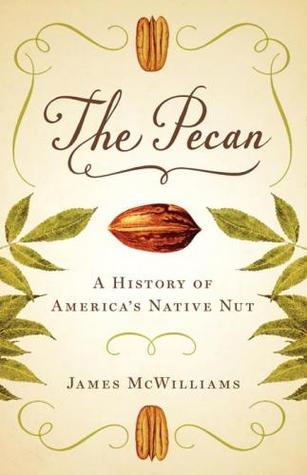[alert variation=”alert-info”]Publisher: University of Texas Press
Formats: Hardcover, eBook, Kindle
Purchase: Powell’s | Amazon | IndieBound | Barnes & Noble | iBooks[/alert]
Writer and historian James McWilliams did an amazing job in The Pecan, researching every aspect of the titular native American nut. It is an exhaustive research that covers every aspect of the pecan. The question is: who are the expected readers for such a thorough study? There is far too much information for the average reader. This is a scholarly study with subscripts referring to references at the end of the volume. Unfortunately, the writing is not very enjoyable: the text is dry and not easy to read. It appears that McWilliams took his extensive research notes, organized them in some fashion, and compiled them in this book. The text is filled with historic quotations from newspapers articles, magazines, speeches, and so on.
“It was in North America alone, however, that the pecan found a climate amicable enough to inspire permanence”.
The history goes back to the Native Americans, and their relationship with this important food, wild pecans. Besides two sketches of varieties of pecans, there are no illustrations. McWilliams explains how pecans were closely related to the development of American industry, agriculture and deforestation. We learn about everything with relationship to pecans: improving varieties from early 1800s, grafting, cultivars, boll weevils, pecan farming, labor unrest, marketing and so on. Most readers would be quickly bored reading this book.
[signoff predefined=”Social Media Reminder” icon=”twitter”][/signoff]

